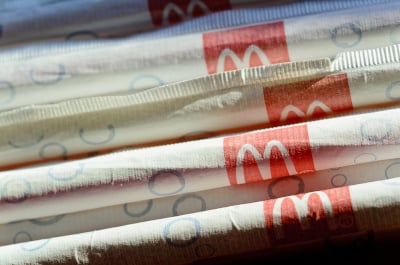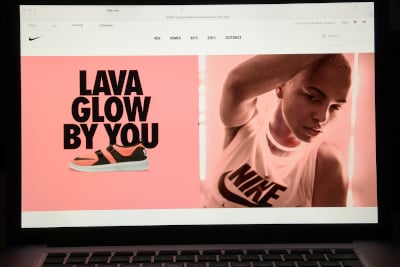Best in Manufacturing – July 14, 2020
Each Tuesday, we publish a list of top articles and other content related to manufacturing in areas like quality control, product development, supply chain management, sourcing, auditing and law.
1. Amazon established a new unit to fight fake goods sellers
 With online orders booming, the number of counterfeits are increasing too. The counterfeits may be of bad quality and may hurt consumer when using. If the consumers bought a counterfeit on an ecommerce platform, they may consider the platform unreliable and avoid shopping on it in the future.
With online orders booming, the number of counterfeits are increasing too. The counterfeits may be of bad quality and may hurt consumer when using. If the consumers bought a counterfeit on an ecommerce platform, they may consider the platform unreliable and avoid shopping on it in the future.
As the leader in ecommerce, Amazon has been suffering counterfeits on its sites for years. Currently there are millions of third-party sellers selling on Amazon but some of them are selling fakes. To get rid of those counterfeiters, Amazon recently announced a new team to monitor its sites.
The new team is called “Counterfeit Crimes Unit”. It is made up of former federal prosecutors, data analysts and investigators. According to Amazon’s announcement, the new unit will mine Amazon sites and collect external resources to locate any “bad move” that might lead to selling counterfeits.
What’s more, Amazon is also strengthening its partnership with law enforcement to report and prosecute counterfeiters. Dharmesh Mehta, Vice President, Customer Trust and Partner Support, Amazon, said:
We urge governments to give these authorities the investigative tools, funding, and resources they need to bring criminal counterfeiters to justice because criminal enforcement is one of the most effective ways to stop them.
The new unit will support “Project Zero”
Amazon has been working to detect and remove counterfeits from its sites. The new Counterfeit Crimes Unit can be seen as a further support to Amazon’s “Project Zero” Program.
Amazon released Project Zero in February 2019. This program uses a combination of product data, machine learning, and serialization to scan the Amazon marketplaces to detect potential counterfeits and warn the brands. It gives brands more tools to drop counterfeits themselves.
Currently, Project Zero covers the U.S., U.K., France, Italy, Spain, Germany, Japan, India, Mexico, and Canada. Any brand who enrolled in Amazon Brand Registry will be free to enroll in Project Zero and get access to Amazon’s automated protections.
Additionally, Amazon also operates a service called Transparency. Transparency is a product serialization service. It can help to identify single product and prevent them from reaching end consumers.
Amazon invest huge in those programs and its efforts are paying back. According to Amazon’s 0blog post, it has invested more than $500 million in 2019 on counterfeit prevention. It has already blocked over 2.5 million “suspected bad actor accounts” and over 6 billion “suspected bad listings”.
Register your trademark to protect your IP and design rights
Counterfeits are annoying. If you are owning a brand, you can’t fully rely on third-party ecommerce seller place to protect your products and brand. Do remember to register your trademark first to protect your IP and design rights.
If you are manufacturing in China, registering trademark is one of the most crucial steps you can take to protect your brand here. China follows a “first to file” trademark system. If you don’t own a trademark, it can be really hard to file a lawsuit to your counterfeiter.
Below we list the general steps of registering a trademark in China. Make sure to register in advance as the whole steps could take up to 15 months.
- Filing the application through the China Trademark Office or the World Intellectual Property Organization (WIPO)
- Choosing your product and service subclasses, if applying through the China Trademark Office (CTMO)
- Registering the trademark in Chinese characters. This is important as your Chinese name your trademark might be registered by another business if you don’t register. This may post potential risk to your brand.
Plus, sign detailed agreements with your factories can be another essential step to protect your IP and design from leaking.
Follow the link below to learn more about Amazon’s new counterfeit-fighting unit.
Amazon says a new ‘Counterfeit Crimes Unit’ will work with law enforcement to take on fraudsters – Annie Palmer, CNBC
2. McDonald's in China will say goodbye to plastic straws for good
In early July, super-size fast food chain McDonald’s announced that all of its stores in China will start to cast away plastic straws. This new decision will affect both dine-in and take-out meals. But McDonald’s will keep using plastic straws for drinks containing solid material like bubble tea.
McDonald’s announced that all of its stores in China will start to cast away plastic straws. This new decision will affect both dine-in and take-out meals. But McDonald’s will keep using plastic straws for drinks containing solid material like bubble tea.
Zhang Jiayin, chief executive of McDonald's China, said the company is dedicated to build a "beautiful China" in his interview with China News:
We believe that taking advantage of McDonald's scale worldwide, reducing straws can be a huge step for sustainable development. In the past decade or so, we have continued to carry out the 'green packaging' action.
As for now, McDonald’s new plastic straw ban only affects about a thousand restaurants in Beijing, Shanghai, Guangzhou and Shenzhen. McDonald’s will expand the ban to all of its stores in China and totally eliminate the use of plastic straws in this country by the end of 2020.
According to this fast food giant, its move of phasing out plastic straws in China can effectively reduce 400 tons of plastic use a year.
Small plastic straws can cause great harm to environment
Plastic straws are so commonly used. You can see them in coffee chains, fast food chains and every convenience store. But those straws can cause huge harm to the planet.
Wherever people dump the plastic straws, in the soil or in the water, most of the plastic straws cannot be decomposed naturally. It will take up to 200 years to decompose plastic straws. During this long period, the plastic straws will break down to smaller pieces and even tiny pieces. The plastic pieces will keep releasing harmful chemicals that harm air, plants, animals and people.
If the plastics straws are dumped into the ocean, they will cause directly harm to the ocean beings.
Over 90 percent of the floating trash on the ocean are plastic waste. Animals may swallow them and cause choking hazards. According to The Odyssey, more than 1 million seabirds die every year for mistook plastic straws as food.
What’s more, plastic straws can break down into microplastics in the ocean. Marine life like fish can easily devour those microplastics. Finally, microplastics will appear in human’s body when people eating fished and drinking water containing microplastics.
Find alternatives for plastic straws
Since the world is now aware of the hazards of plastic straws, people are finding ways to replace them. Not only McDonald’s, many major brands now no longer offer plastic straws to their customers.
For example, leading companies in the coffee chain are replacing plastic straws with paper straws. Starbucks has announced to remove all the plastic straws in stores by 2020. Starbucks will keep plastic straws options but will offer and push the use of paper straws and degradable plastic straws.
Currently, paper straw is the most widely used alternative for plastic straw. They are more likely to biodegrade and less likely to choke marine animals. However, paper straws will get wet quickly and will be hard to drink through them.
So, sugarcane straws are getting popular. Sugarcane straws are made of natural materials and are more eco-friendly. They are non-plastic and non-toxic. The pipe-shape makes them nature alternatives for plastic straws.
Also, there are reusable stainless steel or glass straws. If you take a stainless straw or glass straw with you, it will be easier to refuse plastic straws. There are also reports saying stainless straws can improve the taste of the drinks.
Follow the link below to learn more about McDonald’s pledge to cast away plastic straws.
Fast Food Watch: McDonald's Dumps Plastic Straws – Nicole Sun, thebeijinger
3. Nike's digital fulfillment to address needs during pandemic and how it is changing inventory management
 Since consumers’ buying habits has changed due to the pandemic, brands are changing their inventory to address different needs. Recently, sports giant Nike announced to adjust its buying plan and inventory in its fourth-quarter earnings call.
Since consumers’ buying habits has changed due to the pandemic, brands are changing their inventory to address different needs. Recently, sports giant Nike announced to adjust its buying plan and inventory in its fourth-quarter earnings call.
According to Nike’s CFO Matt Friend, Nike canceled about 30 percent of its factory orders booked before the virus outbreak. On the meantime, the company tripled its digital fulfillment capacity across its North American and European, Middle Eastern and African markets.
Also, Friend pointed out that supporting digital demand will be one of Nike’s main focuses in the future. He said the company will build new tech center to support its needs:
And we plan to open a new regional service center on the West Coast before the holiday season to forward deploy digital inventory, leveraging advanced analytics and demand sensing capabilities from our acquisition of Celect.
Nike’s end-to-end foundation
As the leader in the industry, Nike has been improving itself in many ways. The company has been investing in technology and digital sales to make strategic acceleration. Especially, the company will keep its eyes on end-to-end technology foundation.
End-to-end can be the trend in future shopping method. End-to-end sales enables brands to connect directly to their consumers and better understand their needs. By doing end-to-end sales, a brand can gather the data and analyze what are more popular among a specific area or group of people to make customized sales plan.
John Donahoe, CEO of Nike, explained how Nike will do about the end-to-end foundation. He said:
…we'll speed up the unifier investments across demand sensing, insight gathering, inventory, management and more.
For example, Nike has cut the inventory to a proper amount in some virus-hitting area. Nike has implemented targeted promotions and markdowns to fulfill consumer demands.
In the future, Nike will develop its own digital sales channels and try to be more sensitive about demands to improve its ability to manage risk.
Logistic providers are using new tools to adjust needs
In fact, not only brands, logistic providers are also using new methods to address needs during pandemic and change inventory management. DHL is now partnering with fulfillment solutions provider Locus Robotics to update its warehouses with technology.
With the help of Locus Robotics, DHL can now imply robots to its warehouses to do some repeatable jobs. For example, robots can replace human workers that walk in the warehouses a thousand times to collect according products. Markus Voss, DHL Supply Chain’s global CIO and COO, said this can save human resources for more meaningful tasks:
By replacing monotonous, repetitive and particularly strenuous activities, the aim is not to replace employees over time, but to assign the more attractive and interesting tasks to our human workforce.
The new robotics platform piloted 6 River Systems in a DHL warehouse in Madrid. According to DHL’s press release, the new platform has cut integration and programming time to get new robots up and running by a surprising 60 percent.
By keep improving the products, DHL claimed that the integration time could be reduced by as much as 90 percent in the near future. More logistic providers will consider more intelligent ways to improve their fulfillment management service.
Follow the link below to learn more about Nike’s fulfillment plan amid the pandemic.
Nike increases digital fulfillment capacity 3x due to pandemic – Matt Leonard, Supply Chain Dive
We’re constantly scanning the web for top manufacturing stories and news. If you’d like to submit an article for consideration for our weekly Best in Manufacturing, send us a message and let us know







